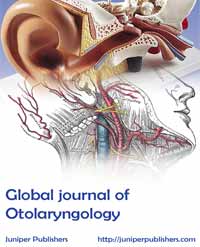Home > News & Research > Labyrinthine and Cortical Concussion: Treatment with Vestibular and Cognitive Rehabilitation

Labyrinthine and Cortical Concussion: Treatment with Vestibular and Cognitive Rehabilitation
Published on: July 13, 2017
Global Journal of Otolaryngology, Volume 5 Issue 1 – March 2017
DOI: 10.19080/GJO.2017.05.555653
Gans RE and Darren Kurtzer
Abstract
The gelatinous brain freely floating in the skull can have multiple impact points during head trauma. On the same side of the impact is the coup injury to the brain; on the opposite side of the impact is the contra-coup injury; and the vectors of force that travel through the entire brain can also cause tearing or shearing of neurons, leading to injury. The American Institute of Balance – Vestibular Cognitive Integration (AIB-VCI) recognizes research showing that creating too much cognitive demand, including during therapy sessions, can have devastating and long-lasting effects on the cognitive abilities of the patient, suggesting that adequate rest periods can be of utmost importance in terms of an efficacious rehabilitation strategy [1]. Thus, being able to independently adjust for cognitive and vestibular activities leads to a safe and effective means of cognitive and vestibular rehabilitation post-concussion.
Recent Posts
Seasonal incidence of benign paroxysmal positional vertigo
Published on: February 6, 2025
Journal of Otolaryngology – ENT Research | Volume 16 – Issue 1 – 2025 Benign paroxysmal positional vertigo (BPPV) is the most frequent type of peripheral vestibular vertigo.1 BPPV is […]
Read more
When Positional Vertigo is Not “Benign”
Published on:
Hearingreview.com | January/February 2025 Benign paroxysmal positional vertigo (BPPV) is the No. 1 cause of vertigo. Except when it’s actually not the cause. Vertebral artery (VA) compromise can mimic BPPV […]
Read more
Comparison between Epley and Gans Repositioning Maneuvers for Posterior Canal BPPV: A Randomized Controlled Trial
Published on: March 26, 2024
Annals of Indian Academy of Neurology | Volume 26 – Issue 4 – July-August 2023 Benign paroxysmal positional vertigo (BPPV) is one of the commonly occurring causes of vertigo. BPPV […]
Read more
How to evaluate and treat the dizzy patient: non-medical diagnosis-based strategies
Published on: February 16, 2024
ENT & Audiology News | Balance & Vestibular Disorders 2024 It is estimated that dizziness, vertigo and falls are the third most common complaints heard by physicians from all age […]
Read more
